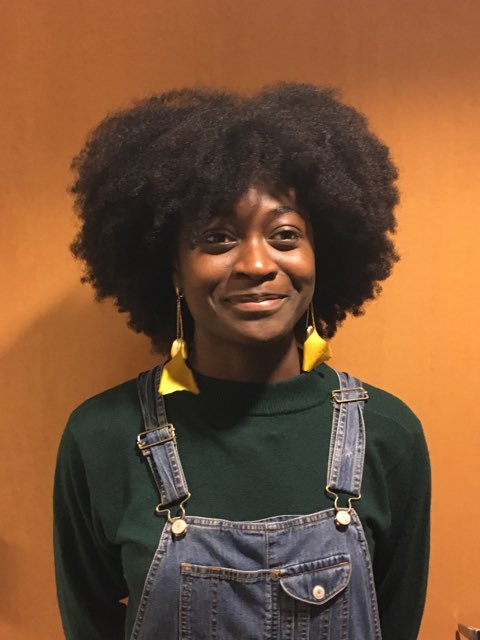
Adesola Thomas
Adesola Thomas is from Hampton, Georgia, and served as the Emory Wheel’s Arts and Entertainment Editor (A&E) from 2019-2020 and the Assistant A&E editor from 2018-2019. She will begin her Master’s in Playwriting & Screenwriting as a Bobby Jones Scholar at St. Andrews University in September 2020.
Within reason, you deserve to be anywhere that you want to be. Believe that, embody that — be that.
Practical Advice and Gooey Musings
by Adesola Thomas
Trey Parker and Matt Stone, the creators of “South Park” and “The Book of Mormon,” made accompanying animated videos for a series of talks that were given by British philosopher Alan Watts. Throughout my high school and college career, I have found myself returning to one of these videos: “Life and Music.” In it, Watts asserts that, just as composers and audience members alike do not “make the end of the [musical] composition the point of the composition,” it is ineffective to approach life as though fortunate, formative experiences like college are simply a means to an end.
Watts suggests life itself is “a musical thing” and we are “supposed to sing and dance while the music [is] being played” rather than rushing to the end of the current experience or composition. In a similar vein, our Emory education may help us access impressive jobs and opportunities in the future. But the proverbial degree, the crescendo at the end of the musical composition that is the Emory experience, is not wholly the point of the experience. In this undergraduate journey, like in other formative parts of our lives, we are supposed to sing and dance the whole time. With the guidance of my mentors at the Center for Women, the compassion of professors and the generosity of my friends, I was constantly reminded to traverse my Emory experience with Watts’ musical musings in mind.
In that spirit, I have chosen to share some pithy pieces of advice to help future Emory seniors make their experiences at our institution “sing” not only their senior year but perhaps the whole time.
Practical advice in second person:
Talk to your professors: Adults in academia are often impressive, which can be intimidating. But they are human people with blood and guts and an interest in knowing you. Stop by their office hours if you have questions. But also make time to learn about how they became who they are. Witnessing the humanity of older people can be life-giving.
Save money on books: During Add/Drop/Swap week, take your syllabus to the library before you take it to the bookstore. You can check out most books that you are required to read from the Woodruff Library for free. Interlibrary loans also make it easy to request a book from another library if Emory doesn’t have it or if someone else has already checked it out.
Do things you care about: Try to minimize performative behavior and feigning interest because it “looks good.” Do things you care about.
Gooey musings:
Sometimes you’ll feel lonely in a room full of people: Not everyone is going to get you or celebrate you all the time. While at Emory, I often found myself being the only black person in the room. Or the only fan of ska music. That can be lonely. But that loneliness does not mean that the things that make you who you are are illegitimate or unimportant, and it does not mean that you are illegitimate or unimportant. Within reason, you deserve to be anywhere that you want to be. Believe that, embody that — be that.
Learn how to like yourself, then learn how to love yourself: Emory, like other elite institutions, attracts high achievers. Know yourself outside the realm of academia or even athletic success. Are you comfortable sharing who you are with other people? When other people are being themselves, do you perform the generous, compassionate act of believing them? Do you dismiss them? Do you envy their quotidian bravery? Why or why not? Getting to know who you are outside of the classroom, lab or performance space is crucial. Whatever it is you choose to pursue in life or at Emory, no one is going to exist for you. That’s why it’s important to work toward enjoying the process of existing as yourself.
Express gratitude and be generous toward other people: There will be many people who see you and celebrate the way you move through the world. These people may be family members back home, Emory faculty, your peers or, in my case, the fabulous people that work at the Belonging and Community Justice suite in the Emory Student Center. Always thank them, offer them that same kindness and communicate to people how they make you feel. They often cannot know unless you tell them. Additionally, spend time offering that same generosity to other people. Our lives aren’t merely our own, and they are often best spent when in service to others.
Countdown to Graduation
Day(s)
:
Hour(s)
:
Minute(s)
:
Second(s)

